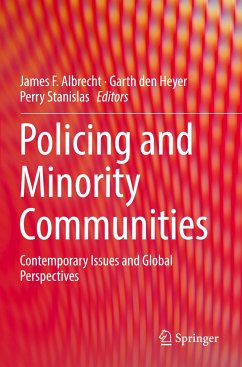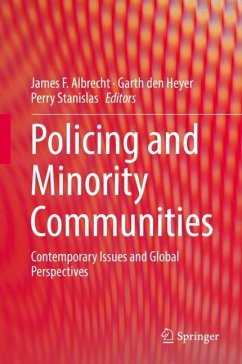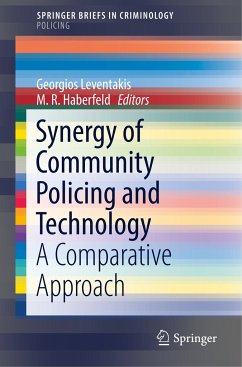
Police Integrity in the Developing World
Building a Culture of Lawfulness

PAYBACK Punkte
20 °P sammeln!
This Brief explores the problem of creating organizational change and a culture of lawfulness within police organizations in the developing world. In many countries where police are charged with responding to crime, they are themselves entrenched in histories of corruption, human rights abuses, inefficiency as well as a lack of public trust. While police corruption can happen anywhere, areas of political transition tend to have a more entrenched cultural history of corruption.However, the author argues that even in the most challenged forces, there remains hope for organizational change. This ...
This Brief explores the problem of creating organizational change and a culture of lawfulness within police organizations in the developing world. In many countries where police are charged with responding to crime, they are themselves entrenched in histories of corruption, human rights abuses, inefficiency as well as a lack of public trust. While police corruption can happen anywhere, areas of political transition tend to have a more entrenched cultural history of corruption.
However, the author argues that even in the most challenged forces, there remains hope for organizational change. This brief demonstrates how understanding the local socio-political context, and applying evidence-based best practices for police integrity training can bring about change. The brief summarizes the current state of knowledge on police integrity training, strategies for rethinking corruption and community policing, as well as two case studies in Bangladesh and Mexico with applications forother regions.
This work will be of interest to students and researchers in criminology and criminal justice, particularly with an interest in police studies and corruption, as well as related fields such as political science, international studies and human rights.
However, the author argues that even in the most challenged forces, there remains hope for organizational change. This brief demonstrates how understanding the local socio-political context, and applying evidence-based best practices for police integrity training can bring about change. The brief summarizes the current state of knowledge on police integrity training, strategies for rethinking corruption and community policing, as well as two case studies in Bangladesh and Mexico with applications forother regions.
This work will be of interest to students and researchers in criminology and criminal justice, particularly with an interest in police studies and corruption, as well as related fields such as political science, international studies and human rights.














